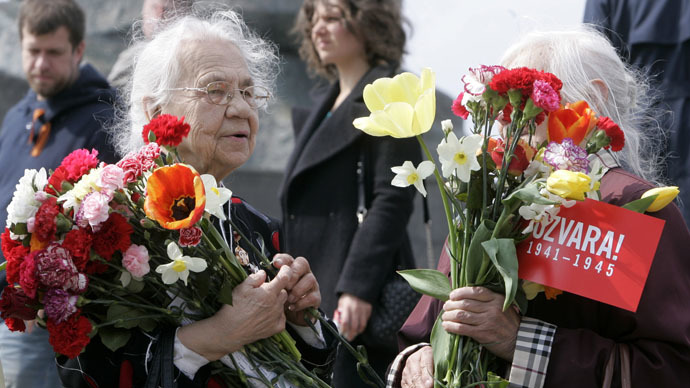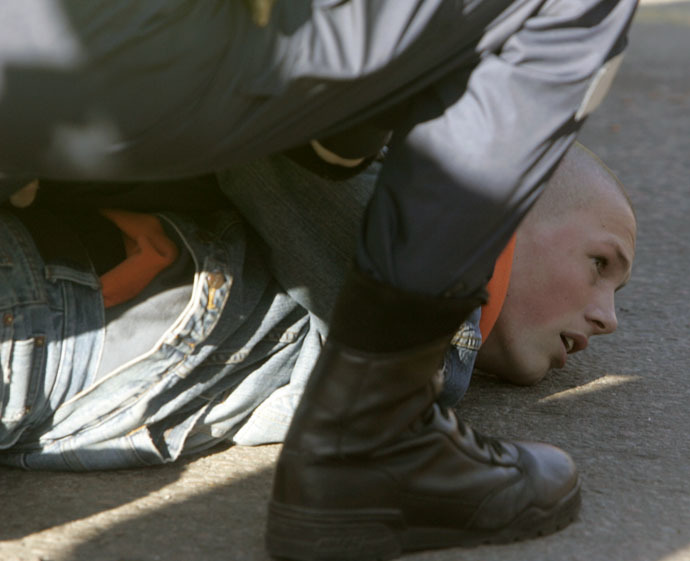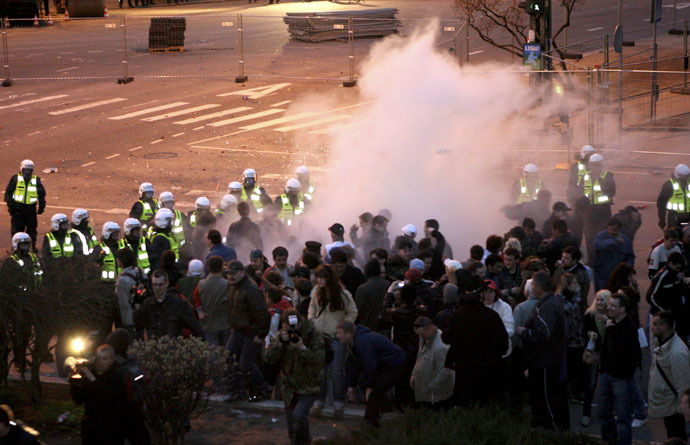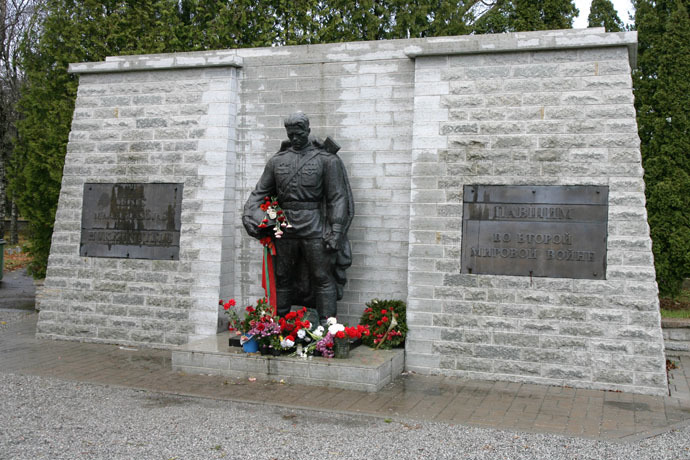WWII vets in Baltic countries to receive Russian pensions

The Russian government has ordered that all WWII veterans from Baltic nations who fought against Nazi Germany should receive lifelong pensions from the Russian state in the currency of their choice.
Veterans in Latvia, Lithuania and Estonia can choose whether they prefer to receive their money monthly from Russian banks, or twice a year by wire transfer to accounts in local banks, reads the decree published on the government web portal on Thursday.
The document says that the Russian Foreign Ministry is responsible for compiling the full list of pensioners. It will include former citizens of the USSR, who fought against Nazism in the Soviet Army or in guerilla units as well as some defense industry workers, whose status during the war was similar to people in the military. The pensioners can be citizens of Baltic nations or hold a non-citizen status there. The payments will range from 500 to 1,000 rubles (about $10-$20) a month, depending on the recipients’ military rank and service history, and the exchange will be calculated on the Russian Central Bank’s rate for the day of payment.

The initiative to award state pensions to WWII veterans from Baltic countries comes from President Vladimir Putin who ordered the government to make the necessary moves on May 8, 2014 – on the eve of the Russian holiday celebrating victory over Nazism.
Authorities in the Baltic countries protested against the decree while it was still in the discussion phase. The country with the largest share of Russian-speaking population – Latvia – was especially vocal in denouncing the Russian document – its Foreign Ministry issued an official protest earlier this year and the Latvian defense minister accused Russia of attempts to split Latvian society.

Since the breakup of the Soviet Union, Russia and the Baltic countries have regularly exchanged protests and accusations over the official history of the WWII and disputed honors and benefits to veterans who fought on different sides. Russia has repeatedly blasted its adversaries for honoring veterans of Waffen-SS units – Nazi troops manned with local recruits that were used for fighting against the Soviet Army, punitive operations against partisans and also in enforcement of the Holocaust.

Russian diplomats have also denounced public statements of various Baltic officials, like the 2012 observation of Latvian President Andris Berzins that “there were no winners in the Second World War.”
According to the Latvian news portal Delfi, about 12,000 Soviet Army veterans who fought in WWII still live in Latvia, Lithuania and Estonia.












